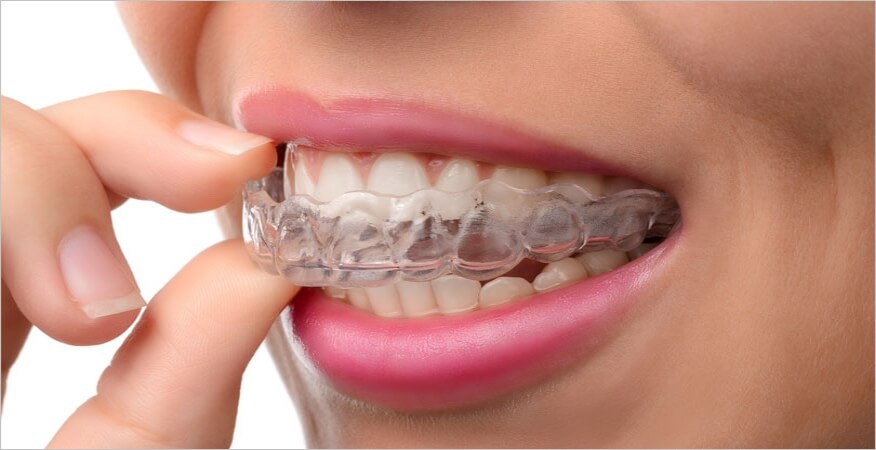Post-implant care is essential if you want your implants to heal faster and live longer. Planning post-implant care can make the healing process easier. It is much better to discuss your questions and concerns before surgery than to know nothing. As your implant adjusts and heals during the first three weeks after surgery, these are crucial. This is why post-implant care is so important. With caution in the first three weeks, the implant may recover faster and function better.
The following article is a dentist’s guide to preparing, with important questions you must ask your dentist before surgery and tips for making your implants heal faster. Let’s start talking about post-implant care!
1. Tips for effective post-implant care
After dental implant surgery, dentists offer some aftercare tips for patients. These are the ones to stick with if you want your implants to heal faster and last a long time. These tips can help people take good care of their implants in the short and long term.
- Stop bleeding with wet gauze
- Ice packs twice a day to reduce swelling
- Pain medication for pain management
- Pay attention to oral hygiene
- Healthy Lifestyle Promotes Fast Recovery
- Switch to soft food for 2-3 weeks after surgery
- Take care of your teeth and wear night guardsE
- Follow Your Post-Post-Dental Evaluation
1) Stop bleeding with wet gauze
Inserting a dental implant involves opening up the gum tissue of the tooth, which is why light bleeding or clots are normal. It is important to find ways to stop the bleeding so the implanted tooth can heal faster. Our dentist recommends that you take a damp gauze and bite on it for at least 30 minutes to an hour. This allows the patient to apply pressure to the tooth, which causes the blood to clot.
There is another way to stop bleeding but always check with your dentist before trying this or any other method. Another popular remedy for stopping bleeding after implant surgery is to nibble on a cold tea bag for at least 30 minutes. Black tea bags are better as they contain the highest level of tannins.
Black tea is known for containing biomolecules called tannins. These biomolecules speed up the wound-healing process by constricting blood vessels. Vasoconstriction restricts blood flow to the affected area and promotes clotting. Once the blood clots, you can expect the bleeding to stop.

2) Ice pack twice a day to reduce swelling
Facial swelling or bruising after implant surgery is fairly common due to the opening of the gum tissue. Ice packs are helpful when this happens because they help reduce swelling. You can also make an ice pack at home by wrapping 5 to 6 ice cubes in a cotton cloth. Apply ice to the area of the face where the implant is located for at least 15 minutes, and try not to apply too much pressure.
If you keep applying ice to the area, expect the swelling to subside within 3 to 4 days. This is one of the easiest and most convenient ways to reduce postoperative swelling.
3) Painkillers for pain management
Due to the invasive procedure, it is natural to experience mild pain after surgery. Dentists often prescribe medication to treat pain, but sometimes they don’t.
The most common pain relievers to control pain during the healing period are ibuprofen or paracetamol. Over-the-counter, they are taken every 4-6 hours. However, check with your dentist before using any pain medication to avoid complications.
4) Pay attention to oral hygiene
Implant healing and maintenance depend heavily on a patient’s oral hygiene habits and general knowledge. After surgery, patients need to keep their implants clean to prevent any complications. The three basic rules are rinsing, brushing, and flossing. Implants are prone to problems after surgery because they are sensitive and in the process of healing. Therefore, it is crucial to keep your teeth clean at this time.
However, do not rinse your mouth for at least 24 hours after surgery because the surgical site is sensitive. After 24 hours, brush and floss regularly. Invest in a soft-bristled toothbrush and less abrasive toothpaste. You should avoid strenuous exercise while brushing and flossing to prevent complications.
5) Healthy lifestyle promotes quick recovery
Taking care of your health is crucial, especially after surgery. A healthy lifestyle helps the body recover faster and gain strength. In addition to good oral hygiene, try eating soft, healthy foods like oatmeal, fruit smoothies, avocados, yogurt, and more.
Although it’s important for you to stay fit, don’t do any strenuous exercise, such as running or weight training. Instead, go for a walk or meditate at home to relax your nerves and avoid any postoperative complications.
6) Switch to soft food for 2-3 weeks after surgery
Implanted teeth are sensitive and prone to problems if precautions are not taken. One of the preventive measures is to switch to soft foods. A soft food diet is not only stomach-friendly, but also prevents excessive stress on the operated teeth. Continue the soft food diet for at least 2 weeks as it prevents any postoperative complications.
The best foods for a soft food diet are avocados, yogurt, rice, mashed potatoes, soups, etc. Such a diet promotes rapid recovery and allows teeth to rest.
7) Protect your teeth and wear night guards
Teeth grinding or bruxism while sleeping can affect the dental health of many people. Many dental problems result from this habit, such as cracks, gaps between teeth, etc. Taking care of your teeth after implant surgery is even more important because your teeth are more sensitive.
Dentists recommend wearing night guards to prevent implants from cracking or causing gum infections. Don’t forget to discuss this with your dentist so they can prepare a night guard for you. Your dentist will prepare a personalized nightly bed to help you sleep better and your teeth function better.
8) Post-operative dental evaluation
Unfortunately, we don’t realize the importance of dental health until it’s too late. Oral health is a vital part of our lives and let’s not forget that it affects our overall health. According to research, poor oral health can lead to digestive problems, as well as other serious problems, such as diabetes.
A dental evaluation after 2 weeks is critical for a smooth recovery. During this visit, your dentist will thoroughly examine your implant and report on its condition. Talking to your dentist about your concerns and concerns can make the process go much more smoothly.
9) Plan ahead for a smooth post-implant care
Planning ahead always works and can make a person more organized. In order for aftercare to run smoothly, it is important to know what you are going to do. Make an appointment with your dentist before the procedure to discuss your questions and concerns. Some of the common concerns are:
- Does the patient need anesthesia?
- Post-operative transportation plan if the patient is receiving local anesthesia
- Should they go to work immediately after surgery?
- Diet management on the day of surgery
The answers to these questions depend on the patient’s personal preferences. For implant procedures, dentists usually calm their nerves with a local anesthetic administered intravenously or orally.Either way, it’s a better idea to discuss anesthesia with your dentist before surgery. The procedure does not require general anesthesia.
The local anesthetic can make you feel light-headed and drowsy, so you’ll need to make a plan for your post-surgery transportation. Ask a friend or family member to take you home safely and easily. Your diet needs to be soft and nutritious so you can recover quickly.
Another question patients ask is whether they can return to work immediately. The answer depends on your personal preference; we recommend taking at least one day off before returning to work. It helps people manage things better and become familiar with change.
2. What should be avoided in the aftercare of dental implants?
To protect your new implants, avoid the following during aftercare:
- For the first two weeks, do not touch the implant
- Don’t indulge in hard and chewy foods
- Stay away from strenuous exercise
- After surgery, do not rinse your mouth for 24 hours
- Do not brush or floss vigorously
- Do not drink alcohol or carbonated beverages for at least 2 weeks
- Do not or at least limit smoking
The first 24 hours after surgery are critical and extra care is required. Do not touch or poke the surgical site, as this can cause more bleeding. If you keep touching the surgical site, other complications may develop, such as gum infection. Additionally, it can affect the recovery process and increase the chance of unwanted postoperative complications. Therefore, we recommend that you leave the surgical area alone for at least 24-48 hours to allow for a faster recovery.
1) Don’t indulge in hard and chewy foods
Your first goal after surgery is to protect your implants, so take whatever steps are necessary to do so. Your diet can make a big difference in reducing the pressure on the implant while chewing. Because the implanted area is sensitive, hard or chewy foods should not be eaten. Soft foods, such as oatmeal, mashed potatoes, yogurt, rice, apple puree, etc., can prevent excessive bleeding.
2) Stay away from strenuous exercise
After surgery, dentists advise against strenuous exercise. It tends to put too much pressure on the implanted area, causing more bleeding than normal. In this case, the implant takes longer to heal and the recovery process is hindered. This is of course the last thing you want, as you want to get back to your normal eating habits. Walking is a gentler form of exercise.
3) Do not excessively rinse your mouth within 24 hours after surgery
During the first 24 hours after implant placement, it is necessary to clean the area around the implant. Do not attempt anything drastic. Bleeding is to be expected, but it’s better to bite the gauze than to gargle constantly. The idea is to practice safety during the first few hours so that the implant is placed securely. If you must rinse, discuss the situation with your dentist to do so safely.
4) Do not brush or floss vigorously
Maintaining oral hygiene is essential, but strenuous exercise poses a risk of damaging implants. Use a soft-bristled toothbrush and, if necessary, floss gently. Having said that, we recommend that you leave the implant site alone for at least 24 hours. Therefore, it is best to start dental care after 24 hours.
5) Do not drink alcohol or carbonated drinks for at least 2 weeks
We know they are tempting, alcoholic and fizzy sugary drinks, but stay away from them for at least a week. Not only do they pose a risk of staining, but they also slow down the healing process. Plus, they increase the chances of rotting and infection. Therefore, we recommend that you refrain from sugary drinks and alcoholic beverages at least until the implant is fully set and healed.
6) Do not or at least limit smoking
Smoking not only affects your overall health but also your oral health. If you are a heavy smoker, your oral health will suffer greatly. The first week after surgery is critical and we recommend that you proceed with caution. This includes avoiding smoking for at least the first week after surgery.
If you are a heavy smoker, try to limit smoking as it can affect active sutures. Smoking dehydrates the mouth, increasing the chance of infection and other complications. Sucking while smoking creates negative pressure and may cause more bleeding. Likewise, don’t drink from a straw, as it can put pressure on the implants and possibly damage them.
3. FAQs about Post-implant Care
Below are frequently asked questions about post-implant care, make sure you have know it.
1) How much pain will there be after dental implants?
Pain varies from person to person, depending on their threshold and dental condition. Some pain and discomfort may occur if the injury is severe and they require more than one implant. In case of post-operative complications, mild pain is possible, in which case the dentist will prescribe pain medication. However, if the condition worsens over time, see your dentist right away.
2) What about the sutures around the implant?
The sutures around the implant are dissolvable and will take about 2-3 weeks to dissolve. If you see the stitches disappear a little each day, it means your implant is healing quickly. Be careful during the first week after surgery to avoid complications involving stitches. For example, avoid hard foods that could irritate the stitches during the healing period.
3) Can I wear dentures after surgery?
Anything that touches the surface of the implant risks damaging the implant. Likewise, if you wear partial or full dentures, they should be discontinued for at least the first two to three days. Many dentists even recommend stopping use for at least a week. The idea is to protect your implants and allow them to heal at their own pace.
4) How to clean after dental implant surgery
Ideally, you leave your implants alone for at least the first 24 hours. After a day, you can resume cleaning the operating area. However, brush and floss as gently as possible. If possible, simply rinse your mouth gently to clean the area. Also, you can use damp cotton to gently clean the area but don’t touch it too much.
5) Can I eat normally after dental implant surgery?
The first few days after surgery require patience and adaptability. Dentists ask patients to switch to soft foods to avoid stress during the bite. You can return to a normal diet, but with caution as your implant is in the healing phase. For further advice, please contact your dentist.
6) Should I leave work after surgery?
It is generally not necessary to ask for a day off, but it is best to maintain a relaxed state of mind. It allows you to recover faster and adapt better to the situation. So it’s up to you, or for more guidance, talk to your dentist.
4. Conclusion
The process of dental implants is very similar to having any other type of dental restoration. However, it has a longer recovery period than other restorations such as crowns or fillings. The best way to handle post-implant care is to follow your dentist’s advice and proceed with caution. The first 24 hours are critical when the implant is at its most sensitive.
Any strenuous exercise or movement can cause injury or cause postoperative complications. Follow the tips above for three weeks after surgery to promote faster healing of the implant. Also, don’t forget to schedule monthly meetings with your dentist to evaluate the restoration of your implants.




